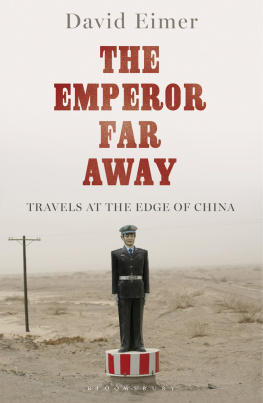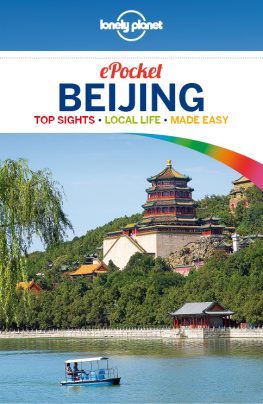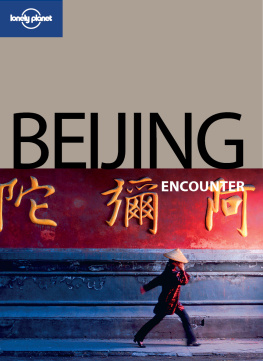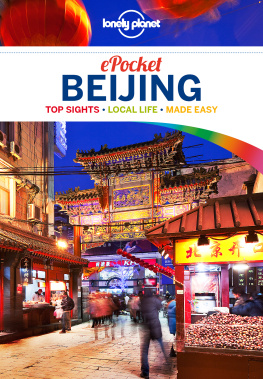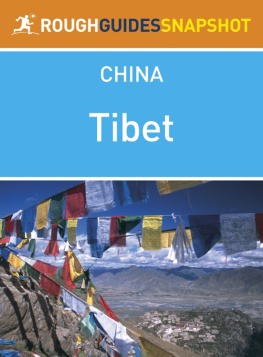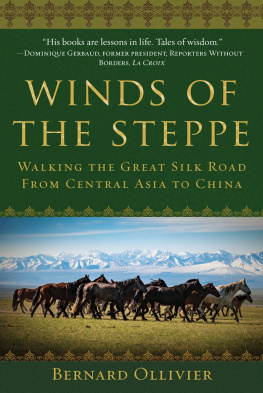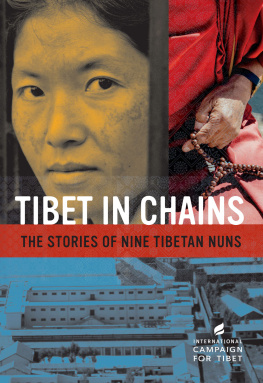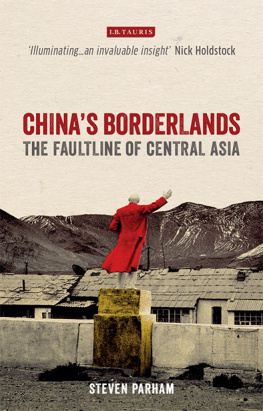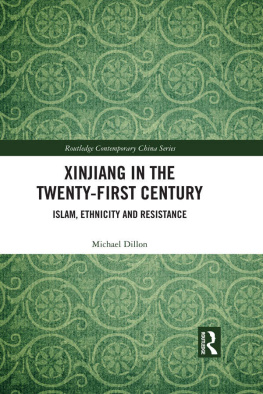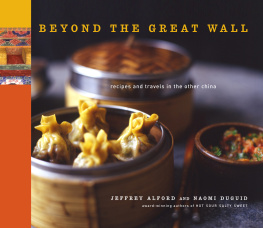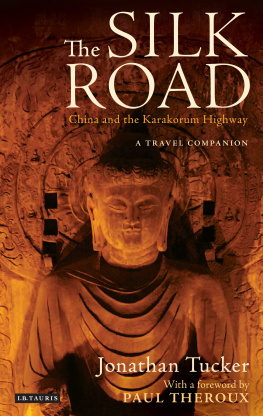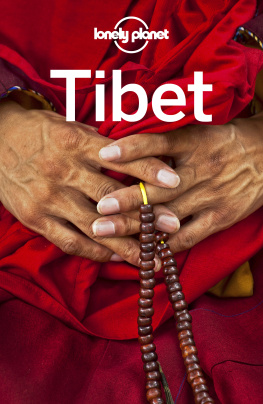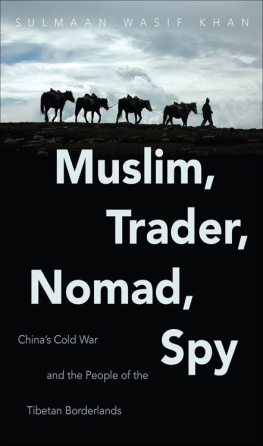All travellers are reliant on the kindness of strangers. A travel writer is even more so. I owe a great debt to the many people who spoke to me about their lives and assisted with introductions. Aba, Angelina, Billy, Christina, Julia, Li Qingmei, Mr Kim, Nang, Paul, Pemba, Piao, Rayila, Samphel, Tenzin and Yu Shumei were especially central to the writing of this book. Sadly, given the sensitivity of the subject matter, I am unable to print their real names. I wish I could.
My agent Ben Mason has been a huge support over the years. The excellent advice of Michael Fishwick, Anna Simpson and Peter James at Bloomsbury was crucial in turning a mere manuscript into a book worthy of publication. Needless to say, any mistakes, or shortcomings, are all mine. My family and friends have been an ongoing source of encouragement.
The following people aided me in different but vital ways in my seven and a half years in China, during my research and travels and as I wrote this book thanks to you all: Anastasia Arkharova, Paul Atherley, Jasper Becker, Natalie Behring, Andrew Chant, Rayhan Demytrie, Laurent Dupin, Peter Foster, Colin Hinshelwood, Jiang Feng, Jin Guangzhu, Jin Ni, Kakharman Khozhamberdi, Justin Kiersky, Nikolay Kukharenko, Eva Li, Lily Li, Zoe Li, Elena Mezhakova, Malcolm Moore, Peter Simpson, Richard Spencer, Chris Taylor, Piero Vio, Samara Yawnghwe, Sean Yu and Xiao Yu.
My friend Billy was always happy to explain why the Uighurs regard the Han as interlopers in Xinjiang. We dont have any connection with the Chinese, he would tell me. We dont look Chinese, we dont speak the same language and we dont eat the same food. And we are Muslims, we believe in Allah. The Chinese believe only in money. It was hard to disagree with him. With their thick hair, big eyes and prominent noses, no one would pick the Uighurs as citizens of the same country as the Han.
Soon after I arrived in Urumqi, I stood waiting for Billy outside a popular department store near the city centre. As usual, he was late. Meeting a Uighur often involves hanging around, because they run on different clocks to the Han. Billy set his watch to unofficial Xinjiang time, which is two hours behind Beijing. It isnt just a case of the Uighurs thumbing their noses at the Chinese, but practical too. Beijing insists on one time zone for all China, another attempt at asserting its mastery over the borderlands. In Urumqi, a 3,000-kilometre journey by car from Chinas capital, it means it is still light at nine at night and dark at eight in the morning.
The department stores workers were lined up outside the entrance like soldiers, while their managers barked instructions at them. Such parades are a common sight in China, whether in factories or outside hairdressers and restaurants. The daily drills are not so much about improving performance or customer service, which remains a vague concept outside of Beijing and Shanghai. Instead, they reaffirm the Chinese devotion to the Confucian order, where everyone has their place.
Teenage and twentysomething Han women made up the vast majority of the stores staff, confirmation perhaps that the Uighurs sit right at the bottom of Urumqis hierarchy. Here in the capital of Xinjiang, where the 9.6 million Uighurs are the largest single ethnic group, the influx of Chinese immigrants in recent years has been such that the Uighurs now account for only 10 per cent of Urumqis population.
Small-scale Han migration to Xinjiang began even before the formal incorporation of the region as a full province of China in 1884, prompted by the acute shortage of land in Chinas interior as the population multiplied. Parts of the territory were occasionally subject to Chinese rule during the previous 2,500 years. But only Emperor Qianlong had been able to control both the Dzungaria and Tarim basins that make up most of what is Xinjiang.
About the size of western Europe, it is a massive area which borders eight countries and accounts for over one-sixth of Chinas total landmass. Much of it is uninhabitable. The Tian Shan Mountains run along the northern frontiers with Kyrgyzstan and Kazakhstan, and divide the dry steppe of the Dzungaria Basin from the Taklamakan Desert which covers most of the Tarim Basin in the south. In the far north the Altai Mountains separate Russia and Mongolia from China. To the west and south, the Pamir, Karakoram and Kunlun ranges mark the frontiers with Afghanistan, Pakistan, Tajikistan, India and Tibet.
Until the Qing dubbed it Xinjiang, it had gone by a variety of names. The Han referred to it first as Xiyu, literally western region, and later as Huijiang, or Muslim territory. To the West, it was Chinese Turkestan, a nod to the indigenous population whose roots lie far away in what are now Turkey and the former Russian Caucasus. The sand of the Taklamakan has preserved the bodies of a few of the earliest inhabitants of Xinjiang, who arrived during the Bronze Age. Those mummies have European features, red or brown hair and light-coloured eyes.
Their descendants are the Uighurs, who went on to intermarry with Persians as well as their central Asian neighbours. Xinjiang is home to at least fourteen different ethnic minorities, including Kazakhs, Kyrgyz, Mongols, Russians, Tajiks, Tatars and Uzbeks, but only the Uighurs regard it as their country. For them, Xinjiang is a Chinese-imposed name. The unknown numbers who want independence call it East Turkestan.
When he finally showed up, Billy looked much the same as before. Still quick to smile and slight with a narrow face, topped by messy black hair, and a scratchy goatee, he was in one of his collection of fake Chelsea shirts, a team he supported with a passion. His love of English football was one of the reasons we became friends, even though I supported a rival London club.
His preference for western clothes meant that Billy didnt wear a doppa , the distinctive square-cornered hat many Uighur males sport. Taking an English name was another expression of his fondness for the West. Many Han, especially those in the big cities who work or come into contact with foreigners regularly, have alternative English names, but few Uighurs do. It suited me that he did. His real name, like those of many Uighurs, had far too many xs in it for me to pronounce properly. It was much easier, and safer, to call him Billy.
We caught a taxi to Yanan Lu, the main street of Urumqis biggest Uighur neighbourhood. I thought it ridiculous that so many Uighurs were concentrated in just one area of the capital of their homeland. But Han and Uighurs do their very best to avoid living side by side, and the sheer number of new Chinese arrivals has forced the Uighurs to cede much of Urumqi to them. Around Peoples Square, the heart of the city, the only concession to Urumqis heritage is that the names of the shops are displayed in both Chinese characters and the Arabic script the Uighur language is written in.
Ramadan had just started, but at the open-air restaurant we had lunch in the Uighur diners were tucking into their food heartily. Out in the country people take it more seriously, theyre more religious there, said Billy, as he ordered polo , the rice and lamb dish that is a staple all over central Asia, kebabs, the freshly baked naan bread the Uighurs eat with every meal, and yoghurt sweetened with sugar.
Uighurs are traditionally more relaxed about their faith than their Pakistani and Afghan neighbours. In part, thats because Islam was a relatively late arrival in Xinjiang, taking hold only in the tenth century. Until then, the locals were mostly Buddhist and it took centuries for all to become Muslims. But even in Urumqi, most Uighur women wear headscarves and long skirts or trousers, while the citys mosques are always busy.
Religion is at the heart of why Beijing has always regarded the Uighurs, along with the Tibetans, as the most recalcitrant of Chinas minorities. As well as periodically rebelling against Chinese rule, the Uighurs steadfastly refuse to integrate with the Han. They scorn Chinese culture and Mandarin in favour of their own language, which is very close to Uzbeki and similar to Kazakh and Kyrgyz, while their music and folklore also have their roots in central Asia.
Next page
